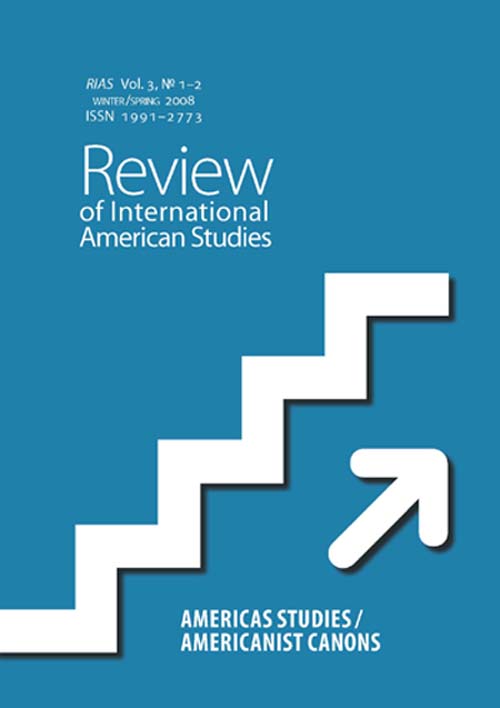Finding the Americas in American Studies Inter-American Studies as an Emerging Field: The Future of a Discipline
Finding the Americas in American Studies Inter-American Studies as an Emerging Field: The Future of a Discipline
Author(s): Earl E. FitzSubject(s): Language and Literature Studies, Studies of Literature, Other Language Literature, Cultural Anthropology / Ethnology
Published by: Wydawnictwo Uniwersytetu Śląskiego
Summary/Abstract: Inter-American Studies is an exciting and fast developing new field, one that has the potential to revolutionize not only how we think about the Americas (including their relationships with Europe [Morency, 1998] and Africa and their pre-Columbian worlds) but about the various disciplines—from literature to economics, from politics to law, and from anthropology to music—that link them together. Although we must credit historians like Herbert E. Bolton with having charted the original conceptual framework for this undertaking early in the twentieth century, and though we have seen interest in the Inter-American project wax and wane through the years, we are now living in a time when, for a variety of reasons, interest in Inter-American relations suddenly looms larger and more urgent than it ever has before. Concerned with a wide range of issues and agencies, such as NAFTA, popular music, literature, and law, the Americas have become, in the early years of the twenty-first century, a deeply interconnected site of tremendous energy and potential. And of conflict.However, as an emergent (and therefore disruptive) intellectual discipline, Inter- American Studies must also be considered part of the larger process of ‘globalization’ that, like the arrival of the banana company train in Garcia Márquez’s "Cien ańos de soledad" ["One Hundred Years of Solitude"], is causing so much upheaval and consternation in so many places. Major players in this vast international game, the Americas are taking note of each other as never before, and the Inter-American paradigm (understood as involving both Francophone and Anglophone Canada, the United States, Spanish America, Brazil and the Caribbean) offers an excellent, though by no means foolproof, method of ensuring that this difficult process of rediscovery and reconsideration proceeds with fairness and accuracy. This is our challenge.
Journal: Review of International American Studies
- Issue Year: 3/2008
- Issue No: 1-2
- Page Range: 32-44
- Page Count: 13
- Language: English

